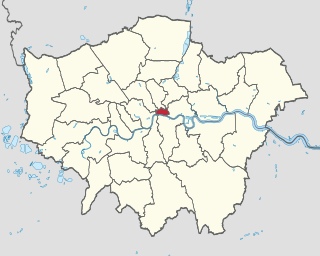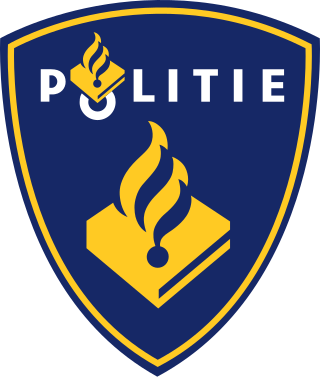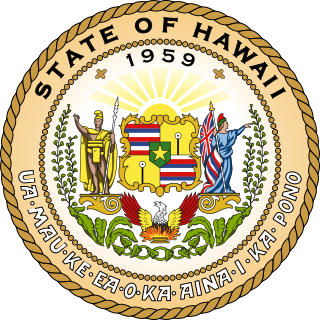
The Australian Federal Police (AFP) is the principal federal law enforcement agency of the Australian Government with the unique role of investigating crime and protecting the national security of the Commonwealth of Australia. The AFP is an independent agency of the Attorney-General's Department and is responsible to the Attorney-General and accountable to the Parliament of Australia. As of October 2019 the Commissioner of the Australian Federal Police is Reece Kershaw, formerly the Northern Territory Police Commissioner.

The City of London Police is the territorial police force responsible for law enforcement within the City of London, England, including the Middle and Inner Temples.

The Crown Prosecution Service (CPS) is the principal public agency for conducting criminal prosecutions in England and Wales. It is headed by the Director of Public Prosecutions.

The Serious Fraud Office (SFO) is a non-ministerial government department of the Government of the United Kingdom that investigates and prosecutes serious or complex fraud and corruption in England, Wales and Northern Ireland. The SFO is accountable to the Attorney General for England and Wales, and was established by the Criminal Justice Act 1987, an Act of the Parliament of the United Kingdom.

A prosecutor is a legal representative of the prosecution in states with either the adversarial system, which is adopted in common law, or inquisitorial system, which is adopted in civil law. The prosecution is the legal party responsible for presenting the case in a criminal trial against the defendant, an individual accused of breaking the law. Typically, the prosecutor represents the state or the government in the case brought against the accused person.

The Serious Organised Crime Agency (SOCA) was a non-departmental public body of the Government of the United Kingdom which existed from 1 April 2006 until 7 October 2013. SOCA was a national law enforcement agency with Home Office sponsorship, established as a body corporate under Section 1 of the Serious Organised Crime and Police Act 2005. It operated within the United Kingdom and collaborated with many foreign law enforcement and intelligence agencies.

The European Public Prosecutor's Office (EPPO) is an independent body of the European Union (EU) with a juridical personality, established under the Treaty of Lisbon between 24 of the 27 states of the EU following the method of enhanced cooperation. The EPPO was established as a response to the need for a prosecutorial body to combat crimes affecting the financial interests of the European Union (EU). The idea of establishing the EPPO gained momentum with a legislative proposal put forth by the European Commission in 2013. After lengthy negotiations and discussions within the European Council, the European Parliament, and Member States, Regulation (EU) 2017/1939 was adopted on October 12, 2017, formalizing the creation of the EPPO. The EPPO Regulation is the EPPO's legal basis, as it outlines the objectives, structure, jurisdiction, and operational procedures. Directive (EU) 2017/1371, also known as the PIF Directive, specifies the criminal offences affecting the EU's financial interest falling under the EPPO's jurisdiction. The EPPO's primary mandate is to investigate and prosecute offences such as fraud, corruption, and money laundering that harm the financial interests of the EU, as defined by the PIF Directive. The EPPO represents a significant step towards a more integrated and effective approach to combating transnational crimes within the EU, fostering collaboration and coordination among member states to protect the Union's financial resources. As an independent EU body, the EPPO plays a crucial role in ensuring the rule of law and safeguarding the integrity of the EU's financial system. The EPPO is based in Kirchberg, Luxembourg City alongside the Court of Justice of the European Union (CJEU) and the European Court of Auditors (ECA).
The Specialist, Organised & Economic Crime Command is a unit within the Gangs and Organised Crime group of Specialist Crime & Operations within London's Metropolitan Police Service. The unit's main responsibility is to both investigate and take steps to prevent fraud, along with a wide range of other fraudulent crimes which require specialist knowledge and training to investigate. The unit was previously known as the fraud squad, or by its previous Specialist Operations designation, SO6.

The Directorate of Special Operations (DSO), commonly known as the Scorpions, was a specialised unit of the National Prosecuting Authority of South Africa formed by President Thabo Mbeki, tasked with investigating and prosecuting high-level and priority crimes including organised crime and corruption. An independent and multidisciplinary unit with a unique methodology which combined investigation, forensic intelligence, and prosecution, the Scorpions were known as an elite unit, and were involved in several extremely high-profile investigations, especially into the Arms Deal and into high-ranking African National Congress (ANC) politicians including Jackie Selebi, Jacob Zuma, and Tony Yengeni.
Law enforcement in Sweden is carried out by several government agencies, under the guidance of the Government of Sweden.

The Polícia Judiciária is the national criminal investigation police agency of Portugal, focused in fighting serious crimes, including homicides, kidnapping, organized crime, terrorism, illegal drug trade, corruption, cybercrime and financial crime. It is integrated into the Ministry of Justice, but operates under the supervision of the Public Ministry.
A fraud squad is a police department which investigates fraud and other economic crimes, the largest of which in the United Kingdom is run by the City of London Police.

The National Anticorruption Directorate, formerly National Anticorruption Prosecution Office, is the Romanian agency tasked with preventing, investigating and prosecuting corruption-related offenses that caused a material damage to the Romanian state. The institution deals with the fight against high corruption offences, which have caused damage greater than €200,000 or if the object of the crime is property or sums of money amounting to over €10,000.

The Norwegian Police Service is the Norwegian national civilian police agency. The service dates to the 13th century when the first sheriffs were appointed, and the current structure established in 2003. It comprises a central National Police Directorate, seven specialty agencies and twelve police districts. The government agency is subordinate to the Ministry of Justice and Public Security and has 16,000 employees, of which 8,000 are police officers. In addition to police powers, the service is responsible for border control, certain civil duties, coordinating search and rescue operations, counterterrorism, highway patrolling, writ of execution, criminal investigation and prosecution. The directorate is led by National Police Commissioner Marie Benedicte Bjørnland.

National Police Corps, colloquially in English as Dutch National Police or National Police Force, is divided in ten regional units, two national units, the police academy, police services center, and national dispatch center cooperation. The law-enforcement purposes of these agencies are the investigation of suspected criminal activity, referral of the results of investigations to the courts, and the temporary detention of suspected criminals pending judicial action. Law enforcement agencies, to varying degrees at different levels of government and in different agencies, are also commonly charged with the responsibilities of deterring criminal activity and preventing the successful commission of crimes in progress. The police commissioner in the Netherlands is Janny Knol since March 1, 2024.

The National Crime Agency (NCA) is a national law enforcement agency in the United Kingdom. It is the UK's lead agency against organised crime; human, weapon and drug trafficking; cybercrime; and economic crime that goes across regional and international borders, but it can be tasked to investigate any crime. The NCA has a strategic role as part of which it looks at serious crime in aggregate across the UK, especially analysing how organised criminals are operating and how they can be disrupted. To do this, it works closely with regional organised crime units (ROCUs), local police forces, and other government departments and agencies.

The Attorney General of Hawaii, the chief legal officer and chief law enforcement officer of Hawaii, is responsible for the Department of the Attorney General which is charged with advising the various other departments and agencies of the state government and for the prosecution of offenses under state law.
The Garda National Economic Crime Bureau – informally known as the Fraud Squad – is a specialised division of Ireland's national police force, the Garda Síochána, that investigates economic crimes. The Bureau operates as part of the Garda Special Crime Operations branch and works alongside other sections of the force, as well as the external Office of the Director of Corporate Enforcement (ODCE), an agency tasked with investigating white-collar crime. The Economic Crime Bureau is responsible for the investigation of serious financial fraud and corruption. It was established in April 1996 and is based at Harcourt Square, Dublin 2. The GNECB is headed by an officer of Detective Chief Superintendent rank, who reports to the Assistant Commissioner of Special Crime Operations.

The Swedish Police Authority is the national police force (Polisen) of Sweden. The first modern police force in Sweden was established in the mid-19th century, and the police remained in effect under local government control up until 1965, when it was nationalized and became increasingly centralized, to finally organize under one authority January 1, 2015. Concurrent with this change, the Swedish Security Service formed its own agency. The new authority was created to address shortcomings in the division of duties and responsibilities, and to make it easier for the Government to demand greater accountability. The agency is organized into seven police regions and eight national departments. It is one of the largest government agencies in Sweden, with more than 28,500 employees, of which police officers accounted for approximately 75 percent of the personnel in 2014. It takes two and a half years to become a police officer in Sweden, including six months of paid workplace practice. Approximately a third of all police students are women, and in 2011 women accounted for 40 percent of all employees.

The General Commissariat of Judiciary Police is an intelligence service within the National Police Corps of Spain responsible for the investigation of organized crime, economic and monetary crimes or cybercrime. CGPJ is also in charge of investigating drug trafficking, gambling control and collecting intelligence for the police corps.














